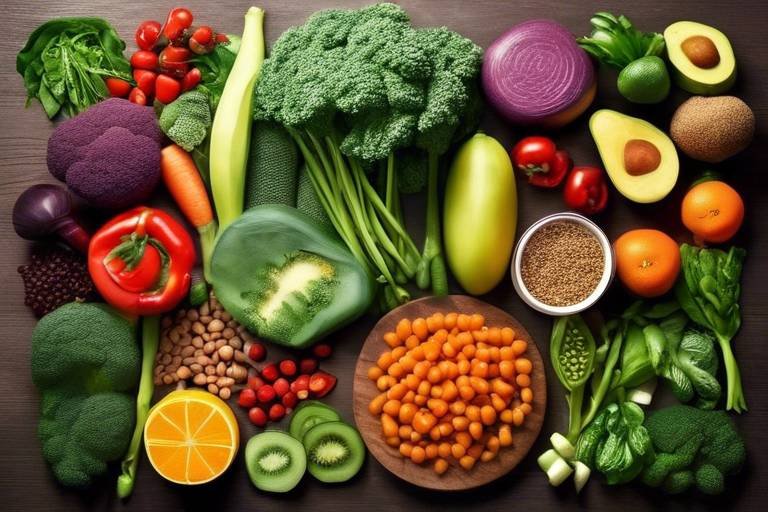Why Choosing Organic Food is Better for the Planet
In recent years, the conversation surrounding food choices has evolved significantly, with more individuals becoming aware of the profound impact their selections have on the environment. When it comes to making a difference, choosing organic food stands out as one of the most effective ways to contribute to a healthier planet. But why is organic food better for the environment? Let’s dive into the intricate web of benefits that organic farming practices weave, and how they play a crucial role in fostering a sustainable future.
Organic farming isn’t just about avoiding chemicals; it’s a holistic approach that emphasizes sustainability and ecological balance. By opting for organic produce, you’re not only supporting local farmers but also promoting farming methods that enhance biodiversity, improve soil health, and conserve water. Imagine a world where our food systems are in harmony with nature, where the soil is rich and alive, and where every bite contributes to the health of our planet. Sounds appealing, doesn’t it?
One of the most significant advantages of organic food is its positive impact on biodiversity. Organic farms often serve as sanctuaries for various species, providing habitats that are increasingly rare in conventional agricultural settings. By choosing organic, you’re helping to protect these ecosystems and the myriad forms of life they support. Think of it as casting a vote for the planet every time you shop for groceries. Each organic purchase sends a message that you care about the environment and the future of our food systems.
Moreover, organic farming practices prioritize soil health, which is the cornerstone of sustainable agriculture. Healthy soil is teeming with life and is essential for growing nutrient-rich food. Organic methods, such as crop rotation, composting, and natural pest control, not only enhance soil structure but also increase its ability to retain nutrients and water. This leads to more resilient ecosystems that can withstand the challenges posed by climate change. It’s like nurturing a garden; the healthier the soil, the more vibrant and productive the plants become.
As we explore the environmental benefits of organic food, we must also highlight its role in carbon sequestration. Organic farming practices enhance soil organic matter, which helps capture carbon dioxide from the atmosphere. This process is vital in mitigating climate change, as it reduces greenhouse gas emissions and promotes a healthier climate. When you choose organic, you’re not just making a dietary choice; you’re actively participating in a global effort to combat climate change.
Water conservation is another crucial aspect of organic farming. Techniques like mulching and cover cropping are widely used in organic agriculture to reduce water usage and improve water quality. These methods help maintain moisture levels in the soil and prevent erosion, thus benefiting both agricultural productivity and natural ecosystems. It’s a win-win situation—less water waste and healthier crops!
In conclusion, choosing organic food is not merely a personal preference; it’s a powerful statement about the kind of world you want to live in. By supporting organic farming practices, you are contributing to a healthier planet, fostering biodiversity, improving soil health, and promoting sustainable water use. So next time you’re at the grocery store, remember that your choices have the power to shape the future of our environment. Choose organic, and be a part of the solution.
- What is organic food? Organic food is produced without the use of synthetic fertilizers, pesticides, or genetically modified organisms (GMOs).
- Why is organic farming better for the environment? Organic farming practices enhance biodiversity, improve soil health, conserve water, and reduce greenhouse gas emissions.
- Are organic foods more nutritious? Some studies suggest that organic foods may contain higher levels of certain nutrients compared to conventional foods.
- How does organic farming reduce chemical exposure? Organic farming avoids synthetic pesticides and fertilizers, minimizing the risk of harmful chemical residues in food.

The Environmental Impact of Conventional Farming
Conventional farming methods, while effective in producing large quantities of food, often come at a significant environmental cost. The reliance on synthetic fertilizers, pesticides, and monoculture practices leads to a cascade of negative effects on our planet. For instance, the use of chemical fertilizers can cause soil degradation, as they strip the earth of its natural nutrients, leading to a dependency on artificial inputs. This cycle not only harms the soil but also contributes to water pollution through runoff, which can contaminate nearby rivers and lakes.
Furthermore, conventional farming practices are notorious for their impact on biodiversity. The emphasis on growing single crops (a practice known as monoculture) reduces the variety of plants and animals in agricultural areas. This lack of diversity can lead to the extinction of certain species, disrupting local ecosystems. When we lose biodiversity, we also lose the resilience of ecosystems, making them more vulnerable to pests and diseases.
In addition to biodiversity loss, conventional farming contributes to climate change. The heavy use of fossil fuels for machinery, transportation, and chemical production releases significant amounts of greenhouse gases into the atmosphere. According to studies, agriculture contributes approximately 10-12% of total greenhouse gas emissions globally. This is a staggering figure that highlights the urgent need for more sustainable farming practices.
It's not just the land that suffers; water resources are also heavily impacted by conventional farming. The overuse of water for irrigation, coupled with the contamination from pesticides and fertilizers, leads to water scarcity and quality issues. For instance, in many regions, the excessive withdrawal of groundwater for irrigation has resulted in the depletion of aquifers, which can take decades or even centuries to replenish.
To summarize the environmental impacts of conventional farming, consider the following key points:
- Soil Degradation: Loss of soil nutrients and structure.
- Water Pollution: Contamination of water bodies due to runoff.
- Biodiversity Loss: Decreased variety of species in farming areas.
- Climate Change Contribution: Significant greenhouse gas emissions.
- Water Scarcity: Over-extraction of water resources.
Understanding these impacts is crucial for recognizing the advantages of organic farming practices, which prioritize ecological balance and sustainability. By shifting our focus to organic methods, we can work towards a healthier planet that supports both human and environmental well-being.
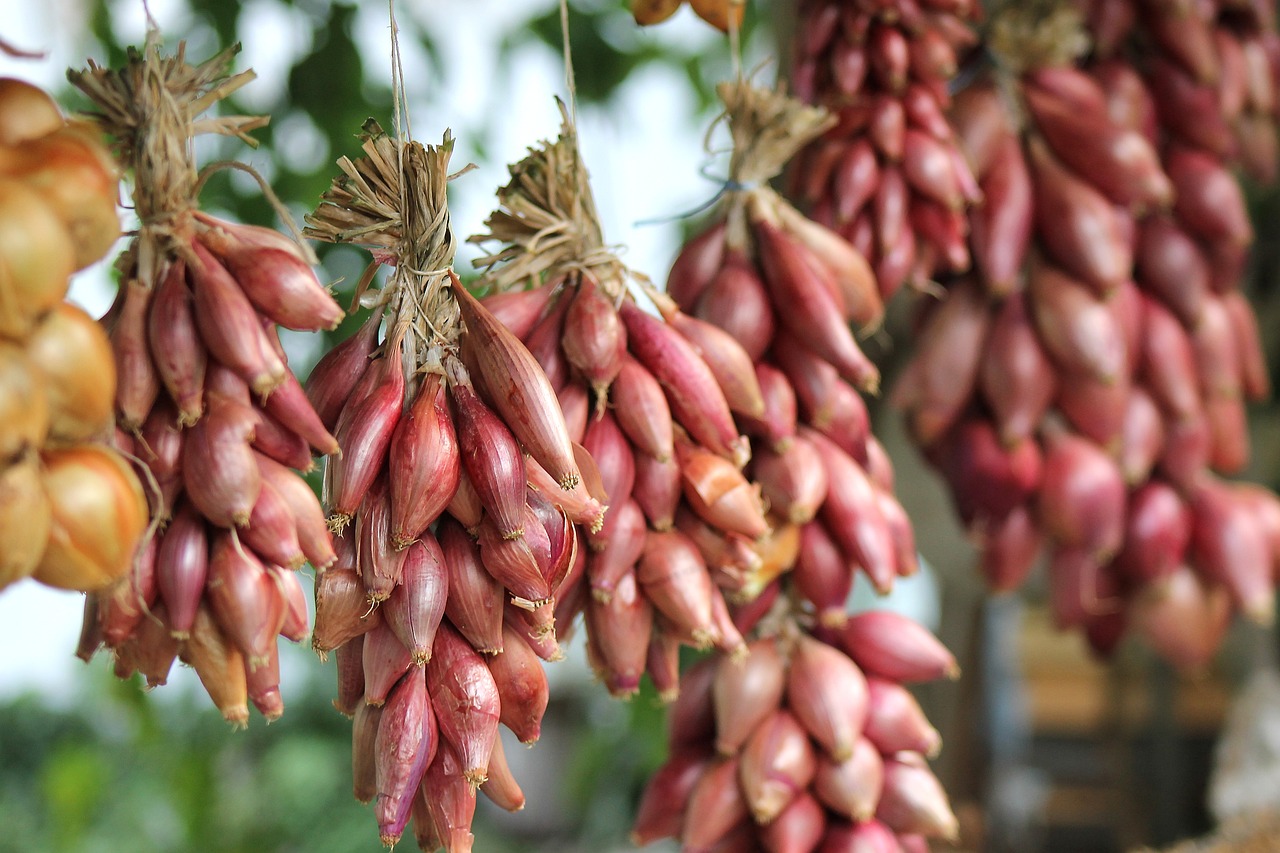
Benefits of Organic Farming Practices
When it comes to farming, the methods we choose can have profound effects on our environment. Organic farming is not just a trend; it's a commitment to sustainable practices that benefit both the planet and our health. One of the most significant advantages of organic farming is its emphasis on ecological balance. By avoiding synthetic fertilizers and pesticides, organic farmers work in harmony with nature, promoting a healthier ecosystem. This approach leads to a variety of benefits, including improved soil health, reduced chemical usage, and enhanced biodiversity.
One of the cornerstones of organic farming is the practice of crop rotation. This method involves alternating the types of crops grown in a particular area to prevent soil depletion and control pests naturally. For instance, planting legumes can enrich the soil with nitrogen, a vital nutrient for plant growth. Additionally, organic farmers often use composting to recycle organic waste into nutrient-rich fertilizer. This not only reduces waste but also enhances soil fertility and structure, leading to better water retention and less erosion.
Another critical aspect of organic farming is natural pest control. Instead of relying on harmful chemicals, organic farmers utilize beneficial insects, such as ladybugs and lacewings, to manage pest populations. This practice not only minimizes chemical exposure but also fosters a balanced ecosystem where various species can thrive. The result is a healthier farm environment that can produce high-quality food without the negative side effects associated with conventional farming methods.
To illustrate the benefits of organic practices, consider the following table that compares key aspects of organic and conventional farming:
| Aspect | Organic Farming | Conventional Farming |
|---|---|---|
| Soil Health | Improved through composting and crop rotation | Often depleted due to chemical fertilizers |
| Chemical Usage | No synthetic pesticides or fertilizers | Heavy reliance on chemicals |
| Biodiversity | Promotes diverse ecosystems | Can lead to monocultures |
| Pest Management | Natural pest control methods | Chemical pesticides |
By embracing these organic practices, farmers can create a resilient agricultural system that not only produces food but also enhances the surrounding environment. The benefits of organic farming extend beyond just the farm; they contribute to the overall health of our planet. When we choose organic, we are not merely opting for a different type of food; we are supporting a farming philosophy that prioritizes sustainability, health, and ecological balance.
In conclusion, the benefits of organic farming practices are numerous and far-reaching. From enhancing soil health to promoting biodiversity, these methods are essential for creating a sustainable future. As consumers, when we choose organic products, we are making a conscious decision that supports not only our health but also the health of our planet. So, the next time you're at the grocery store, ask yourself: What kind of impact do I want my food choices to have?
- What is organic farming? Organic farming is an agricultural method that emphasizes the use of natural processes and materials, avoiding synthetic fertilizers and pesticides.
- How does organic farming benefit the environment? Organic farming improves soil health, enhances biodiversity, and reduces pollution from chemicals.
- Are organic foods healthier? Research suggests that organic foods may contain higher levels of certain nutrients and lower levels of pesticide residues.
- Can organic farming help combat climate change? Yes, organic practices such as carbon sequestration and improved soil health can help mitigate climate change effects.
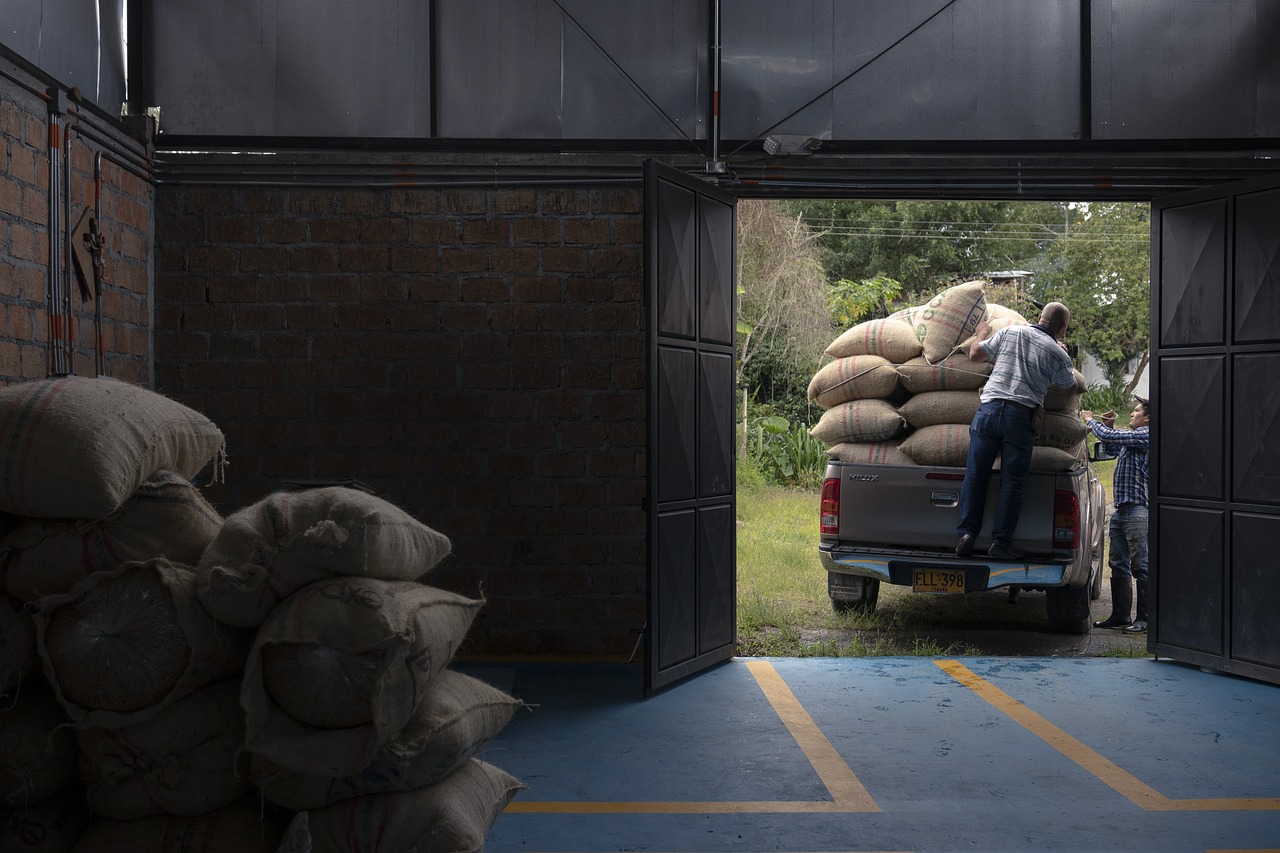
Soil Health and Fertility
When we talk about soil health, we're diving into the very foundation of agriculture. Healthy soil is like the engine of a car; without it, everything else falters. Organic farming practices are designed to enhance this vital resource, ensuring that it remains fertile and productive for generations to come. One of the main advantages of organic methods is their ability to improve soil structure. This means that the soil can hold more water, nutrients, and organic matter, which is essential for supporting plant life. Imagine trying to grow a garden in a sandy, dry desert—it's nearly impossible! But when you have rich, loamy soil, it's like giving your plants a five-star hotel experience.
Another key aspect of soil health is nutrient retention. Organic practices such as composting and cover cropping add organic matter back into the soil, which helps retain essential nutrients. This is particularly important because nutrient-rich soil can lead to healthier plants that are more resilient to pests and diseases. In fact, studies have shown that soils enriched with organic matter can hold up to 20% more nutrients than conventional soils. This means that not only do organic farmers get better yields, but they also contribute to a more sustainable agricultural system.
Moreover, promoting microbial diversity is another cornerstone of organic farming. Healthy soil is teeming with life—bacteria, fungi, and other microorganisms work together to break down organic matter, releasing nutrients that plants can absorb. When we use chemical fertilizers and pesticides, we often disrupt this delicate balance, leading to a decline in soil health. Organic farming, on the other hand, fosters a thriving ecosystem in the soil, which enhances its fertility and resilience against climate variability.
To illustrate the impact of organic practices on soil health, consider the following table:
| Aspect | Conventional Farming | Organic Farming |
|---|---|---|
| Soil Structure | Poor, prone to erosion | Improved, retains moisture |
| Nutrient Retention | Low, dependent on chemical inputs | High, enriched with organic matter |
| Microbial Diversity | Reduced, often harmful | Enhanced, beneficial microorganisms thrive |
In essence, healthy soil is not just a benefit of organic farming; it's a necessity. As we face the challenges of climate change and food security, maintaining soil health and fertility becomes even more critical. By adopting organic practices, we not only improve the quality of our food but also contribute to a sustainable future for our planet.
- What is soil health? Soil health refers to the ability of soil to function as a living ecosystem that sustains plants, animals, and humans.
- How do organic practices improve soil fertility? Organic practices such as composting and crop rotation enhance soil structure, retain nutrients, and promote microbial diversity.
- Why is microbial diversity important? Microbial diversity helps break down organic matter and release nutrients, making them available for plants and contributing to overall soil health.
- Can organic farming help combat climate change? Yes, organic farming can enhance carbon sequestration in the soil, helping to mitigate climate change effects.
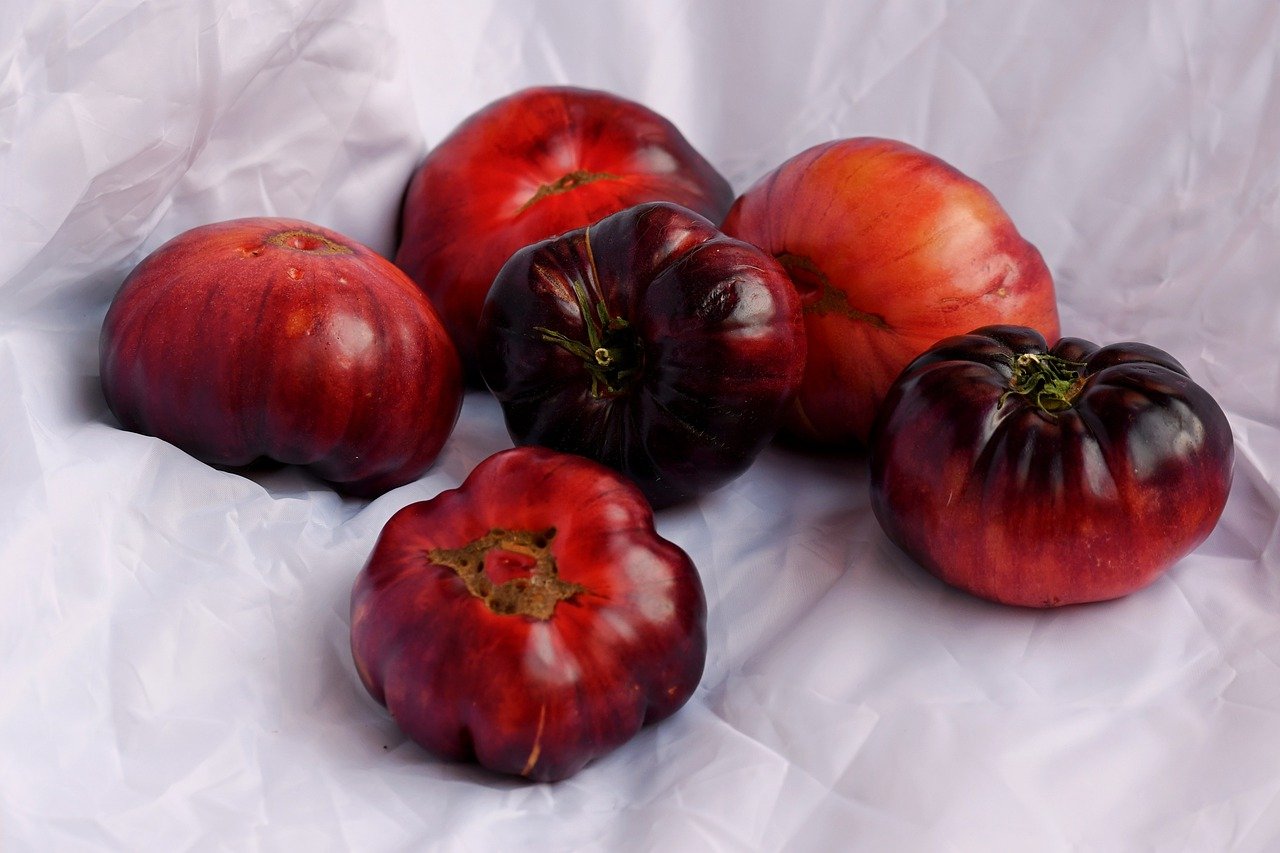
Carbon Sequestration
When we talk about climate change, one of the most pressing issues of our time, carbon sequestration often comes up as a key solution. But what exactly does it mean? In simple terms, carbon sequestration is the process of capturing and storing atmospheric carbon dioxide (CO2). This is where organic farming shines brightly! By employing practices that enhance soil organic matter, organic farming not only helps in capturing CO2 but also plays a crucial role in mitigating climate change.
One of the standout features of organic farming is its ability to improve soil health. Healthy soils are like sponges; they can absorb and store more carbon. This happens through a variety of organic practices, such as:
- Cover Cropping: Planting cover crops during off-seasons helps prevent soil erosion and adds organic matter to the soil, which in turn captures carbon.
- Composting: By recycling organic waste into compost, farmers can enrich the soil, enhancing its carbon storage capacity.
- Reduced Tillage: Minimizing soil disturbance helps maintain soil structure and promotes the buildup of organic matter, leading to greater carbon sequestration.
These practices not only contribute to carbon capture but also foster a healthier ecosystem. When organic farmers focus on enriching their soil, they create a thriving environment for microorganisms that play a vital role in the carbon cycle. It's like nurturing a tiny universe beneath our feet! This microbial activity not only helps in sequestering carbon but also enhances soil fertility, leading to more robust crop yields.
Moreover, the impact of carbon sequestration through organic farming practices extends beyond the farm. By reducing the amount of carbon dioxide in the atmosphere, we can help lower global temperatures and combat the adverse effects of climate change. Think of it as a natural air conditioner, cooling down our planet one farm at a time.
In conclusion, carbon sequestration is a powerful tool in the fight against climate change, and organic farming practices are at the forefront of this battle. By choosing organic, not only are we supporting sustainable agriculture, but we are also contributing to a healthier planet for future generations. Isn’t it amazing how our food choices can have such a profound impact on the world around us?
- What is carbon sequestration?
Carbon sequestration is the process of capturing and storing atmospheric carbon dioxide to mitigate climate change. - How does organic farming contribute to carbon sequestration?
Organic farming enhances soil health and organic matter, which increases the soil's ability to capture and store carbon. - What practices in organic farming help sequester carbon?
Practices such as cover cropping, composting, and reduced tillage all contribute to improving soil health and carbon capture. - Why is soil health important for carbon sequestration?
Healthy soils can absorb and store more carbon, making them essential in the fight against climate change.

Water Conservation
Water is one of our planet's most precious resources, and with the increasing challenges posed by climate change and population growth, conserving it has never been more critical. Organic farming practices are not just about growing food without synthetic chemicals; they also prioritize as a fundamental principle. By utilizing methods such as mulching, cover cropping, and crop rotation, organic farmers can significantly reduce water usage while enhancing the quality of the water that remains in our ecosystems.
One of the most effective techniques in organic farming for conserving water is mulching. This practice involves covering the soil with organic materials like straw, leaves, or grass clippings. Mulching serves multiple purposes: it helps retain moisture in the soil, reduces evaporation, and suppresses weed growth, which can compete for water. Imagine a cozy blanket wrapped around the soil, keeping it warm and hydrated, allowing plants to thrive even in drier conditions.
Another important method is cover cropping, where specific plants are grown during the off-season. These crops not only prevent soil erosion but also improve soil structure and fertility. By planting cover crops, farmers can enhance the soil's ability to hold water, creating a sponge-like effect that captures rainwater and reduces runoff. This means that during heavy rains, less water is lost to the environment, and during dry spells, the soil retains more moisture for the crops to use. It’s like having a built-in water reservoir right beneath our feet!
Additionally, organic farmers often implement drip irrigation systems, which deliver water directly to the plant's roots. This targeted approach minimizes water waste and ensures that every drop counts. Unlike traditional irrigation methods that can lead to significant water loss through evaporation and runoff, drip irrigation is efficient and effective. It's akin to having a personal water fountain for each plant, providing just the right amount of hydration without excess.
To further illustrate the impact of these practices, consider the following table that compares water usage in conventional versus organic farming:
| Farming Method | Average Water Usage (liters per kg of produce) |
|---|---|
| Conventional Farming | 500-700 |
| Organic Farming | 300-500 |
As seen in the table, organic farming can use significantly less water than conventional methods, showcasing its efficiency and sustainability. This is crucial not only for farmers looking to maximize their resources but also for our planet, which is facing increasing water scarcity.
In conclusion, the water conservation techniques employed by organic farmers not only benefit their crops but also contribute to the overall health of our ecosystems. By choosing organic, consumers are supporting practices that prioritize sustainability and environmental stewardship. So next time you pick up that organic apple or tomato, remember that you’re not just making a healthier choice for yourself, but also for the planet!
- What is organic farming? Organic farming is an agricultural method that focuses on growing food without synthetic fertilizers or pesticides, emphasizing sustainability and ecological balance.
- How does organic farming conserve water? Organic farming uses techniques such as mulching, cover cropping, and drip irrigation to retain soil moisture and reduce water waste.
- Are organic foods healthier for me? Many studies suggest that organic foods may have higher nutrient levels and lower pesticide residues, contributing to better health outcomes.
- Why should I choose organic? Choosing organic supports sustainable farming practices, promotes biodiversity, and reduces your exposure to harmful chemicals.
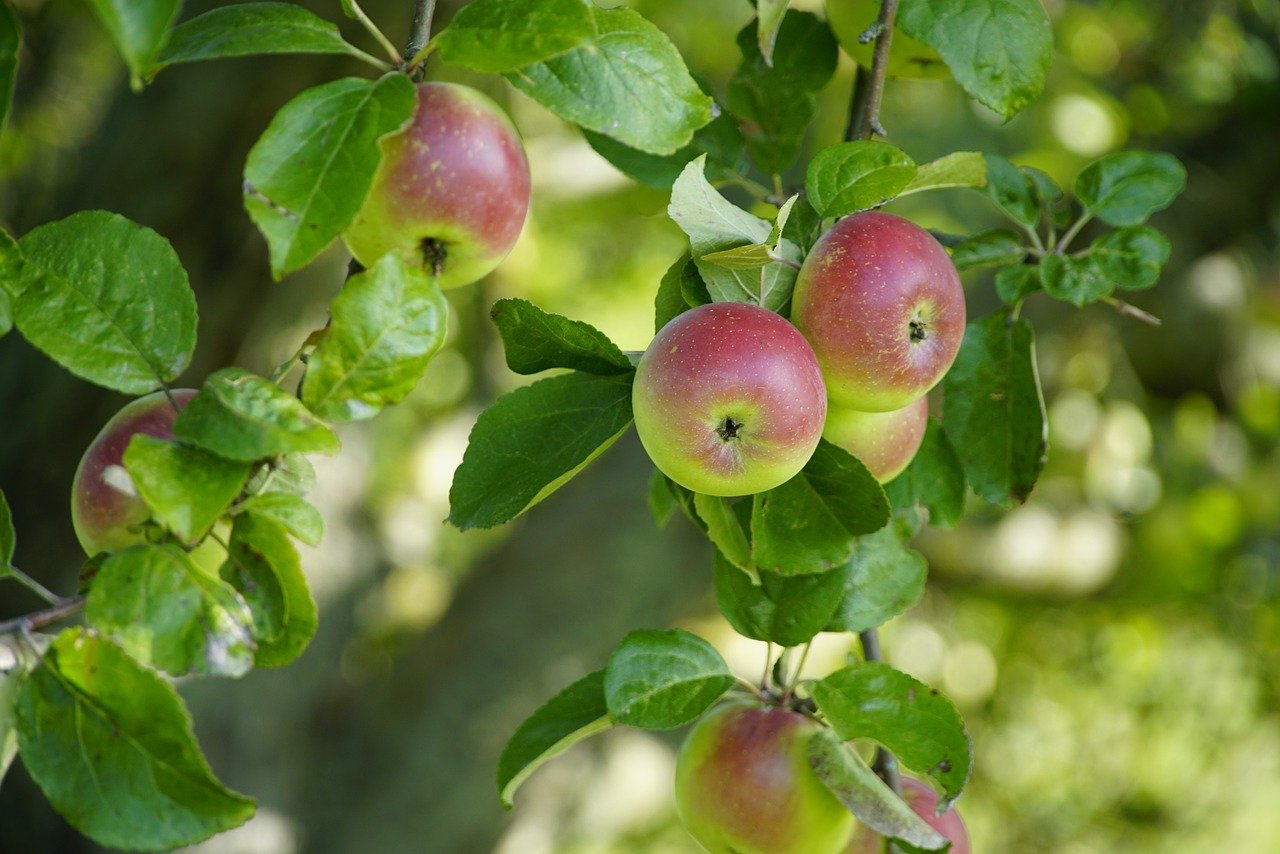
Biodiversity and Ecosystem Health
Biodiversity is the tapestry of life on Earth, encompassing the variety of species, their genetic differences, and the ecosystems they form. In the realm of organic farming, promoting biodiversity is not just a trend; it's a fundamental principle that underpins the health of our planet. When we consider the importance of biodiversity, it's like looking at a vibrant garden where every plant, insect, and microorganism plays a role in creating a balanced ecosystem. Organic farming practices foster this balance by encouraging a diverse range of species, which in turn supports ecosystem resilience.
One of the most significant impacts of organic farming on biodiversity is the creation of habitats. Organic farms often feature a mix of crops, hedgerows, and natural habitats that provide shelter and food for various wildlife species. This diversity is crucial because it helps maintain ecological balance, allowing different species to thrive and interact. For instance, when a farm is rich in plant diversity, it attracts beneficial insects like pollinators and natural pest predators, which can help control pest populations without the need for harmful chemicals.
Moreover, organic practices such as crop rotation and intercropping not only enhance soil health but also promote biodiversity. By rotating crops, farmers can disrupt pest cycles and reduce the likelihood of disease, while intercropping can create a more complex habitat that supports a wider range of species. This is akin to a well-orchestrated symphony, where each instrument contributes to a harmonious sound, enhancing the overall performance of the ecosystem.
In addition to supporting wildlife, organic farming practices help maintain genetic diversity within crops. This is vital for food security, as diverse genetic resources can lead to more resilient crops that can withstand pests, diseases, and climate change. By preserving heirloom varieties and local species, organic farmers contribute to a more sustainable agricultural system that can adapt to future challenges.
To illustrate the benefits of biodiversity in organic farming, consider the following table that summarizes the advantages:
| Aspect | Benefits of Biodiversity in Organic Farming |
|---|---|
| Soil Health | Improved nutrient cycling and soil structure. |
| Pest Management | Natural pest control through predation and parasitism. |
| Pollination | Increased crop yields from diverse pollinator species. |
| Climate Resilience | Enhanced ability to withstand environmental changes. |
In conclusion, the connection between biodiversity and ecosystem health is undeniable. Organic farming practices not only protect and enhance biodiversity but also create a more resilient agricultural system. By choosing organic, consumers are not just making a personal health choice; they are supporting a farming system that nurtures the planet's ecosystems and contributes to a healthier future for all living beings. So, the next time you reach for that organic apple or leafy green, remember that your choice is part of a larger movement towards ecological balance and sustainability.
- What is biodiversity? Biodiversity refers to the variety of life in a particular habitat or ecosystem, including the diversity of species, genetic variations, and the ecosystems they form.
- How does organic farming support biodiversity? Organic farming supports biodiversity by creating habitats for wildlife, promoting crop diversity, and using practices that enhance the health of ecosystems.
- Why is biodiversity important for agriculture? Biodiversity is crucial for agriculture because it helps maintain ecological balance, supports pest control, and contributes to the resilience of crops against diseases and climate change.
- Can I contribute to biodiversity by choosing organic food? Yes! By choosing organic food, you support farming practices that prioritize biodiversity and contribute to healthier ecosystems.
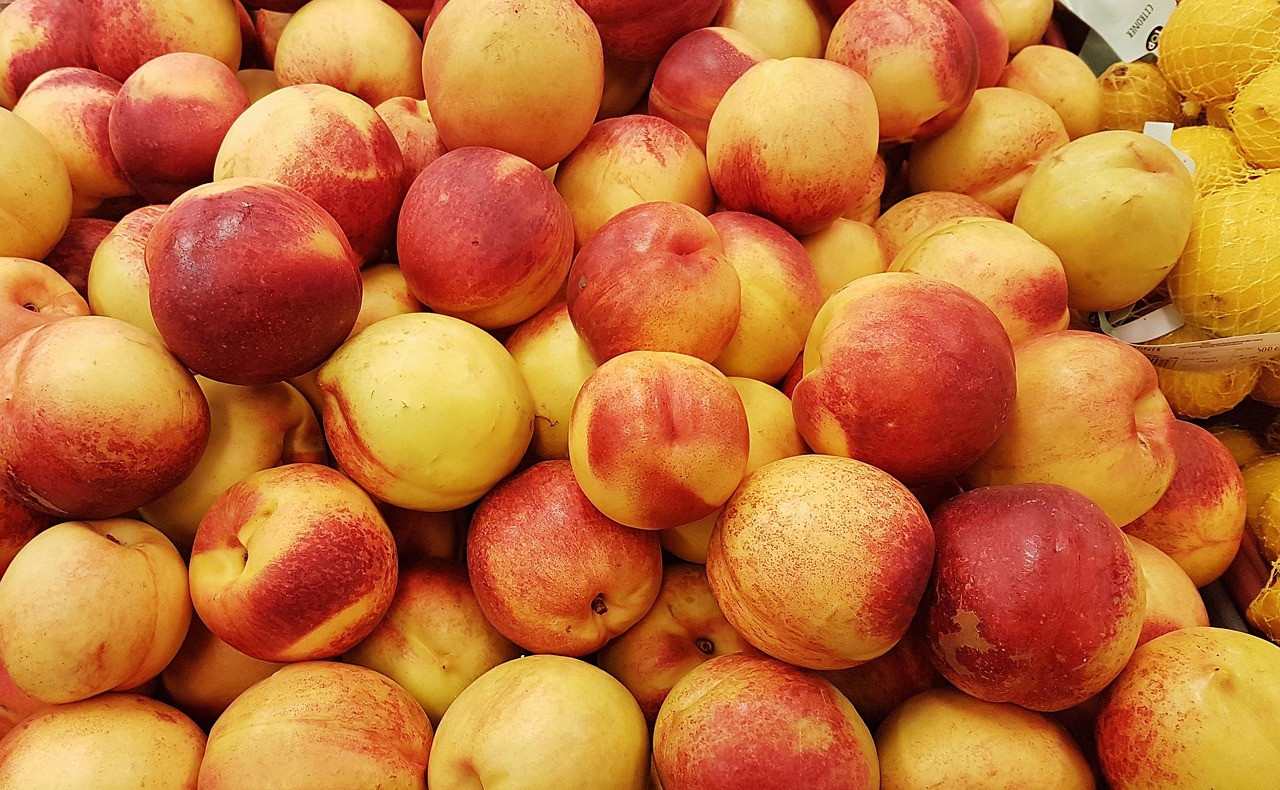
Healthier Food Choices
Choosing organic food is not just a trend; it's a conscious decision that benefits both our health and the environment. When we opt for organic produce, we are making a choice that resonates with the idea of sustainability and wellness. But what exactly makes organic food a healthier choice? Let's dive into the details.
First and foremost, organic foods are grown without the use of synthetic pesticides and fertilizers. This means that when you bite into an organic apple, you're not just enjoying its crispness; you're also avoiding a cocktail of chemicals that can linger on conventionally grown fruits and vegetables. Studies have shown that these chemicals can have harmful effects on human health, leading to concerns about long-term exposure. By choosing organic, you are reducing your risk of pesticide exposure and promoting a healthier lifestyle.
Furthermore, research suggests that organic foods may have a higher nutritional profile compared to their conventional counterparts. For instance, a study published in the British Journal of Nutrition found that organic produce often contains higher levels of antioxidants, which are crucial for fighting free radicals in our bodies. Antioxidants can help reduce the risk of chronic diseases, including heart disease and cancer. So, when you choose organic, you're not just making a choice for the planet; you're also investing in your health.
Another significant point to consider is the impact of organic farming on soil health. Healthy soil leads to healthier plants, which in turn produce more nutritious food. Organic farming practices, such as crop rotation and composting, enrich the soil with essential nutrients, making it more fertile. This means that the organic carrots you buy at the farmer's market are likely to be packed with vitamins and minerals compared to those grown conventionally.
Moreover, let's not forget about the taste! Many people who switch to organic foods report that they find them to be fresher and more flavorful. This can be attributed to the fact that organic farming practices focus on natural growth cycles and avoid the use of artificial ripening agents. Imagine biting into a juicy, sun-ripened tomato that tastes like summer—this is what organic choices can offer.
In summary, choosing organic food is about making a holistic decision that benefits your body and the environment. It’s a way to support sustainable farming practices while ensuring that you consume food that is free from harmful chemicals and rich in nutrients. So next time you're at the grocery store or the local farmer's market, consider reaching for that organic label. Your body—and the planet—will thank you!
- What are the main differences between organic and conventional food?
Organic food is grown without synthetic pesticides and fertilizers, while conventional food may be treated with these chemicals. Organic farming practices also prioritize sustainability and biodiversity. - Is organic food more nutritious?
Research indicates that organic foods may contain higher levels of certain nutrients, including antioxidants, compared to conventional foods. - Why is organic food often more expensive?
Organic farming typically involves more labor-intensive practices and lower yields, which can contribute to higher prices for consumers. - How can I ensure I'm buying truly organic products?
Look for certifications from reputable organizations, such as the USDA Organic label, which ensures that the food meets strict organic standards.

Nutritional Benefits of Organic Foods
When it comes to food choices, the term "organic" often sparks curiosity and debate. Are organic foods really better for you? The answer leans heavily towards a resounding yes! Research suggests that organic foods may boast higher levels of certain nutrients compared to their conventional counterparts. For instance, studies have shown that organic fruits and vegetables can contain up to 50% more antioxidants. These compounds are crucial because they help protect your body from oxidative stress, which can lead to chronic diseases.
But what exactly makes organic produce stand out? One key factor is the way these foods are grown. Organic farming practices tend to prioritize natural fertilizers and composting, which enrich the soil and, in turn, the crops. This means that the fruits and vegetables you eat are not just free from harmful pesticides but also packed with more vitamins and minerals. For example, a recent study found that organic tomatoes had significantly higher levels of vitamin C and phenolic compounds than conventionally grown tomatoes.
Another important aspect to consider is the impact of soil health on nutrient content. Healthy soil leads to healthy crops. Organic farming techniques, such as crop rotation and the use of cover crops, enhance soil fertility and biodiversity. This not only contributes to the nutritional quality of the food but also supports a resilient ecosystem. As a result, when you choose organic, you’re not just opting for a meal that’s better for your body; you’re also supporting a farming system that nurtures the planet.
Furthermore, the reduced use of synthetic pesticides and fertilizers in organic farming means that organic foods tend to have lower levels of harmful residues. This is particularly important for vulnerable populations like children, who are more susceptible to the negative effects of chemicals. By choosing organic, you’re making a conscious choice to protect your health and that of your family.
In summary, the nutritional benefits of organic foods are significant and multifaceted. They are not only richer in essential nutrients but also free from harmful chemicals, making them a wise choice for health-conscious consumers. The next time you’re at the grocery store, consider reaching for that organic apple or those vibrant organic greens. Your body—and the planet—will thank you!
- Are organic foods really healthier than conventional foods?
Yes, organic foods often contain higher levels of certain nutrients and are free from harmful pesticides. - What are the environmental benefits of organic farming?
Organic farming practices promote biodiversity, improve soil health, and reduce pollution. - How can I tell if a product is truly organic?
Look for certification labels from reputable organizations that ensure the product meets organic standards. - Is organic food more expensive?
While organic foods can be pricier, many people believe the health and environmental benefits justify the cost.
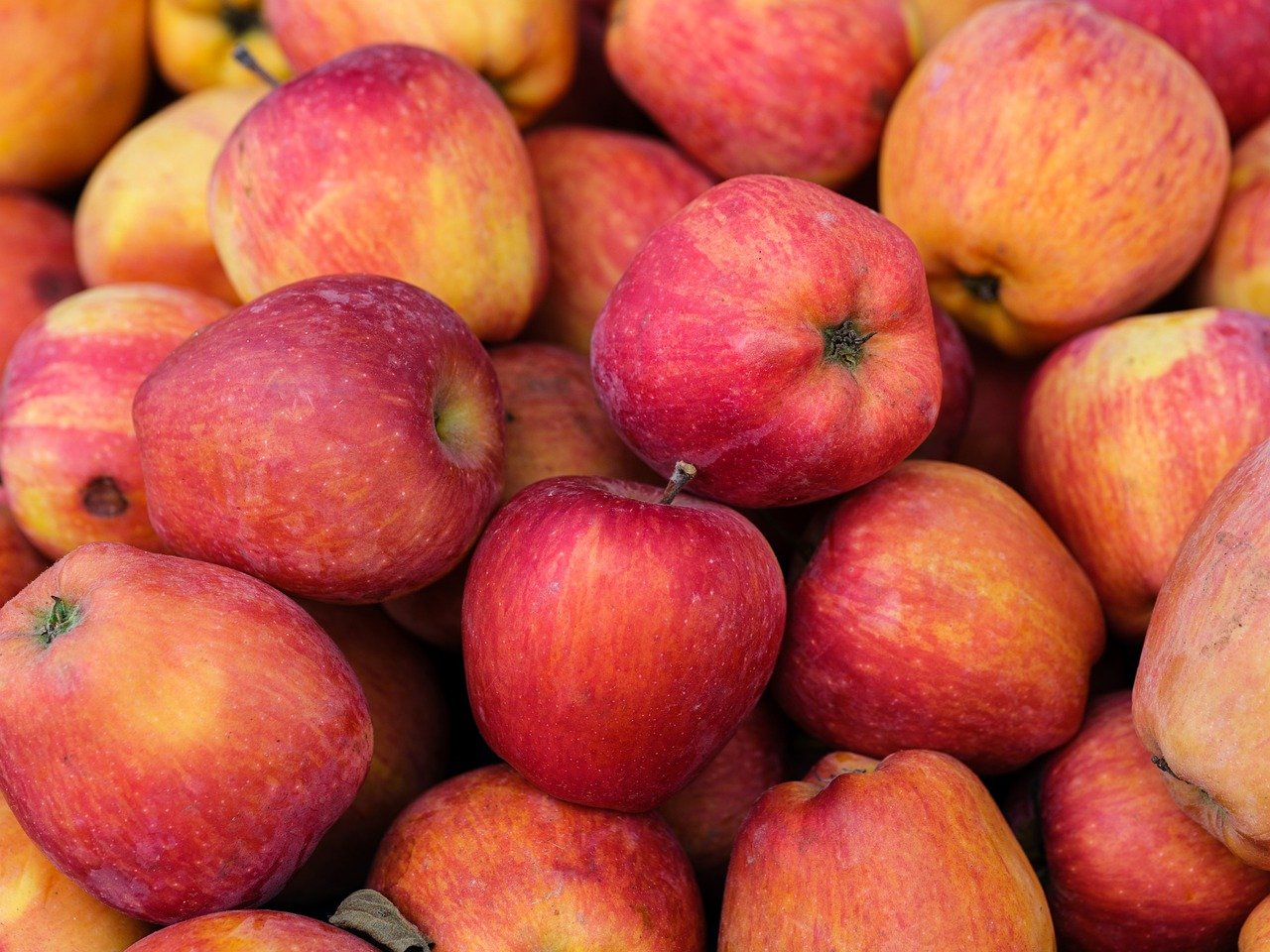
Reducing Chemical Exposure
In today's world, where we are increasingly aware of what we consume, the choice of organic food stands out as a beacon of health and sustainability. One of the primary reasons consumers gravitate towards organic options is the significant reduction in chemical exposure. Conventional farming often relies heavily on synthetic pesticides and fertilizers, which can leave residues on fruits and vegetables. These chemicals not only pose health risks to consumers but also contribute to environmental degradation. By choosing organic, you are opting for a cleaner, safer food source.
Organic farming practices prioritize the use of natural fertilizers and pest control methods, which means that the produce you consume is less likely to contain harmful residues. For instance, while conventional farms might use chemical sprays to ward off pests, organic farms often employ techniques such as crop rotation and companion planting. These methods create a balanced ecosystem that naturally deters pests without the need for toxic chemicals. This not only protects your health but also supports a healthier environment.
Research has shown that organic produce typically has lower levels of pesticide residues compared to conventionally grown food. According to a study published in the Journal of Agricultural and Food Chemistry, organic fruits and vegetables had significantly fewer pesticide residues, making them a safer choice for consumers, especially for vulnerable populations like children and pregnant women. The table below summarizes the differences in pesticide residues between organic and conventional produce:
| Type of Produce | Pesticide Residue Level (ppm) | Organic | Conventional |
|---|---|---|---|
| Apples | 0.1 | Yes | No |
| Strawberries | 0.05 | Yes | No |
| Spinach | 0.02 | Yes | No |
Moreover, the health implications of chemical exposure are significant. Studies have linked pesticide exposure to various health issues, including hormonal disruptions, neurological disorders, and even certain types of cancer. By choosing organic, you are actively reducing your risk of these potential health hazards. It’s like choosing to walk a path that is free from the toxic fumes of a busy highway; you breathe easier, feel better, and know you’re making a healthier choice.
In conclusion, the decision to go organic is not just about personal health; it’s a commitment to a cleaner, safer planet. By reducing chemical exposure through organic farming practices, we contribute to a better future for ourselves and the generations to come. So, next time you’re at the grocery store, consider the impact of your choices. Are you ready to embrace the organic lifestyle?
- What are the main benefits of choosing organic food?
Choosing organic food helps reduce chemical exposure, supports sustainable farming practices, and promotes biodiversity. - Is organic food more nutritious than conventional food?
Some studies suggest that organic food may contain higher levels of certain nutrients, although the differences can vary. - How can I identify organic food?
Look for certification labels on packaging, such as "USDA Organic" or similar certifications in your country. - Are organic foods more expensive?
Yes, organic foods often cost more due to the labor-intensive practices and lower yields, but many find the health benefits worth the investment.
Frequently Asked Questions
- What are the main environmental benefits of choosing organic food?
Choosing organic food helps reduce soil degradation, water pollution, and loss of biodiversity. Organic farming practices prioritize ecological balance and sustainability, which ultimately leads to a healthier planet.
- How does organic farming improve soil health?
Organic farming enhances soil health through practices like crop rotation, composting, and natural pest control. These methods improve soil structure, increase nutrient retention, and promote microbial diversity, making ecosystems more resilient.
- What role does organic farming play in carbon sequestration?
Organic farming contributes to carbon sequestration by enhancing soil organic matter. This process captures carbon dioxide from the atmosphere, helping to mitigate climate change and reduce greenhouse gas emissions.
- How does organic farming conserve water?
Organic methods utilize techniques such as mulching and cover cropping, which help conserve water. These practices reduce overall water usage and improve water quality, benefiting both agriculture and natural ecosystems.
- Why is biodiversity important in organic farming?
Biodiversity is crucial for maintaining ecological balance. Organic farming creates habitats for various species, which supports wildlife and contributes to healthier ecosystems.
- Are organic foods more nutritious than conventional foods?
Research suggests that organic foods may contain higher levels of certain nutrients compared to conventional produce. This can lead to potential health benefits for consumers who choose organic options.
- What are the risks associated with pesticide exposure?
Pesticide residues on conventional produce can pose health risks to consumers. By choosing organic food, individuals can minimize their exposure to harmful chemicals, promoting better public health.



